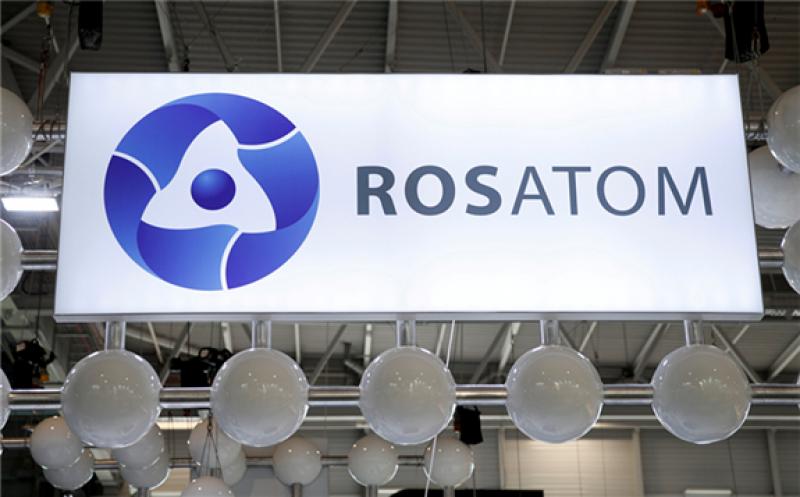Isotope JSC (a part of Rusatom Healthcare JSC, Rosatom’s radiation technologies integrator) has signed a five-year contract with Brazil’s Nuclear and Energy Research Institute (IPEN; linked to the National Nuclear Energy Commission or CNEN) to supply lutetium-177 and actinium-225, the most promising medical isotopes in radiopharma.

A long-term contract for monthly supplies of 177Lu-trichloride carrier-added became possible following a successful registration of lutetium-177 manufactured by INM JSC and approval of the Russian-made radioisotope for further registration of radiopharmaceutical DOT-IPEN-177 produced by IPEN/CNEN by the Brazilian National Health Surveillance Agency (Anvisa). The contract strengthens ROSATOM’s standing as the leading supplier of radioisotopes to the Latin American markets.
Technologies development for the production of 177Lu-trichloride and actinium-225 is concentrated within the institutes of ROSATOM scientific division (Science and Innovations JSC).
Lutetium-177 (Lu-177) is one of the most promising medical radionuclides used in the production of innovative radiopharmaceuticals. According to the leading scientists in advanced medicines, the lutetium-177-based drugs demonstrate high therapeutic efficacy in targeted therapy of some oncological diseases including metastatic forms of castration-resistant prostate cancer, neuroendocrine tumours, lung cancer, etc. ROSATOM is the only company in the world technologically capable to produce all types of lutetium-177. Capacity of INM JSC production site launched within the strategic program "Development of Nuclear Medicine and Technology" will allow to increase volume of supplied products in future.
Actinium-225 (Ac-225) is currently being destined for research of a new radiopharmaceutical 225Ac-PSMA that is to be produced by IPEN/CNEN and become a new product for Brazilian Nuclear Medicine. Since October 2020 Isotope JSC has successfully delivered few batches of Actinium-225 manufactured by IPPE JSC for test purposes to the Radiopharmacy Center of IPEN/CNEN to assess product quality and possible application of the Russian-made actinium-225 with peptide.
Today, dozens of lutetium-177 and actinium-225-based radiopharmaceuticals are at various stages of clinical trials in the world. According to the world scientific community, innovative radiopharmaceuticals will make a significant contribution to the fight against widespread oncological diseases.
“This contract is the result of many years of meticulous work on both sides. It is of great social importance as it opens up new possibilities for the treatment of thousands of patients. With its unique technological base of research reactors, ROSATOM State Corporation produces the widest range of medical isotopes. One of the key tasks of Rusatom Healthcare and Isotope JSC is to increase the availability of radionuclide products which are the foundation of Nuclear
Medicine. Collaboration with IPEN-CNEN is an example of international cooperation aimed to introduce high technologies to cancer treatment all over the world” — said Natalia Komarova, Director General of Rusatom Healthcare JSC.
ROSATOM and IPEN-CNEN have been actively developing cooperation in Nuclear Medicine since the сontract for supplies of the medical isotopes in high demand (molybdenum-99, iodine-131) was signed in 2017. The сontract was concluded as part of an intergovernmental agreement between Russia and Brazil. Currently, ROSATOM covers about 50% of Brazil's needs in medical isotopes.
General information:
Isotope JSC is the official supplier of the products manufactured by ROSATOM’s Isotope Complex to the international market and a key supplier to the Russian market. The Company was founded in 1958. Current partners of Isotope JSC include more than 100 foreign companies from 50 countries around the world and about 600 organizations within Russia, inclusive of hospitals, industrial facilities, and scientific institutions. www.isotop.ru
Nuclear and Energy Research Institute or IPEN is a State Autarchy linked to the Economic Development Secretariat of the State of São Paulo, associated with the University of São Paulo in the Teaching function, technically and administratively managed by the National Nuclear Energy Commission (CNEN), Federal autarchy linked to the Ministry of Science, Technology and Innovation (MCTI). IPEN/CNEN was founded in 1956 to conduct research in the nuclear area and has a well-developed laboratory infrastructure, with two nuclear research reactors, two cyclotron accelerators, two industrial electron accelerators, gamma radiators, among other facilities. www.ipen.br